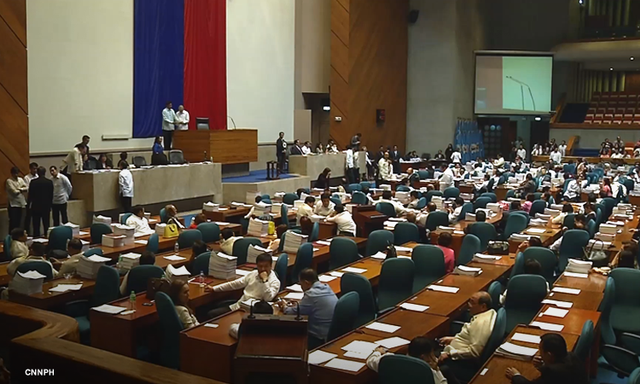EMPLOYERS are keeping most of their workers for now even as they face output slowdown due to the coronavirus outbreak, but could end up laying off in the future should the crisis last more than half of the year.
Sergio R. Ortiz-Luis Jr., president of the Employers Confederation of the Philippines (Ecop), said that members of the group are likely to keep their manpower in spite of the challenges posed by the coronavirus spread. Managements, he explained, are implementing flexible work arrangements to be able to cope with the adversities and retain their workers at the same time.
“There’s no such thing as mass layoffs for now,” Ortiz-Luis told the BusinessMirror. “In fact, our members continue to add job postings and hire new workers. Things, however, could change if this virus carries on for the next two or three months.”
If the crisis extends to half of the year and the situation worsens in China, then this could be the point when firms will consider laying off some of their workers, Ortiz-Luis said. Many manufacturers rely on supplies from China, and it will be difficult for them to sustain their production at normal pace with imports cut and trade disrupted.
“We have to face the reality that most of our manufacturing firms, particularly the producers of electronic parts—our largest export item—purchase their raw materials and inputs from China, and we know what’s happening in China right now,” Ortiz-Luis explained.
“If this whole thing extends longer than is expected, then we should expect output to go down. And that entails the consequence that firms will need to reduce their workers as well because production is hurt and there’s less requirement for labor,” he added.
UN assessment
The Philippines could lose as much as $300 million worth of exports, mostly in communication equipment, due to the coronavirus outbreak, although it will be the least to take damage in the Southeast Asian region, according to an assessment by the United Nations.
The country’s exports are projected to drop by roughly $300.4 million due to the spread of the coronavirus. Broken down, the Philippines will likely suffer significant damage in the shipment of communication equipment, office machinery and electrical equipment.
On the other hand, initial estimates by the National Economic and Development Authority put job losses between 30,000 and 95,000 on business slowdown due to the crisis.
Further, the Trade Union Congress of the Philippines in February warned that at least 7,000 workers in airlines, cruise ship, travel agencies, and hotels and restaurants could be laid off within the next six months. Firms will likely be compelled to do retrenchments to somewhat cut profit losses caused by the coronavirus outbreak.
Flag carrier Philippine Airlines (PAL) had to let go of some 300 workers in order to trim losses and in anticipation of a travel slowdown, both attributed to the crisis.
Ortiz-Luis argued what PAL did, for now, can be treated as an isolated case. He, however, said the tourism industry will be one of the hardest hit by the dreaded respiratory infection, as travel bans are slapped by jurisdictions to prevent the further spread of the coronavirus.
Last week, the Tourism Congress of the Philippines lamented stakeholders, such as hotels and resorts, are asking their workers to take leaves, as the volume of visitors keeps plunging on travel bans placed against China, Hong Kong and Macau.
Upon the directive of President Duterte, foreign nationals from mainland China and its special administrative regions are prohibited from entering the archipelago. Filipinos and those holding permanent resident visas issued by the government are exempted from the ban, although they are required to undergo a 14-day self quarantine.
With the travel ban in effect, foreign arrivals in February declined more than 41 percent, based on preliminary data from the Bureau of Immigration.
Creating jobs
In the face of a looming jobs problem, Ortiz-Luis vowed Ecop members will keep on creating employment opportunities as long as they have the capacity to do so. He cited, for one, efforts of employers based in Southern Tagalog to take in at least 3,000 workers to rescue those who lost their jobs from the Taal Volcano eruption.
“There’s 6,000 positions that our members just opened,” he bared. “Half of those are in firms in the Calabarzon [Cavite, Laguna, Batangas, Rizal, Quezon] region. We know what went down in there, and that’s why we created jobs for those displaced by the disaster.”
The respiratory illness first detected in Wuhan, China, has spread throughout many parts of the world. In the Philippines, there are 33 confirmed cases as of Tuesday afternoon.
Image credits: Nonie Reyes



































